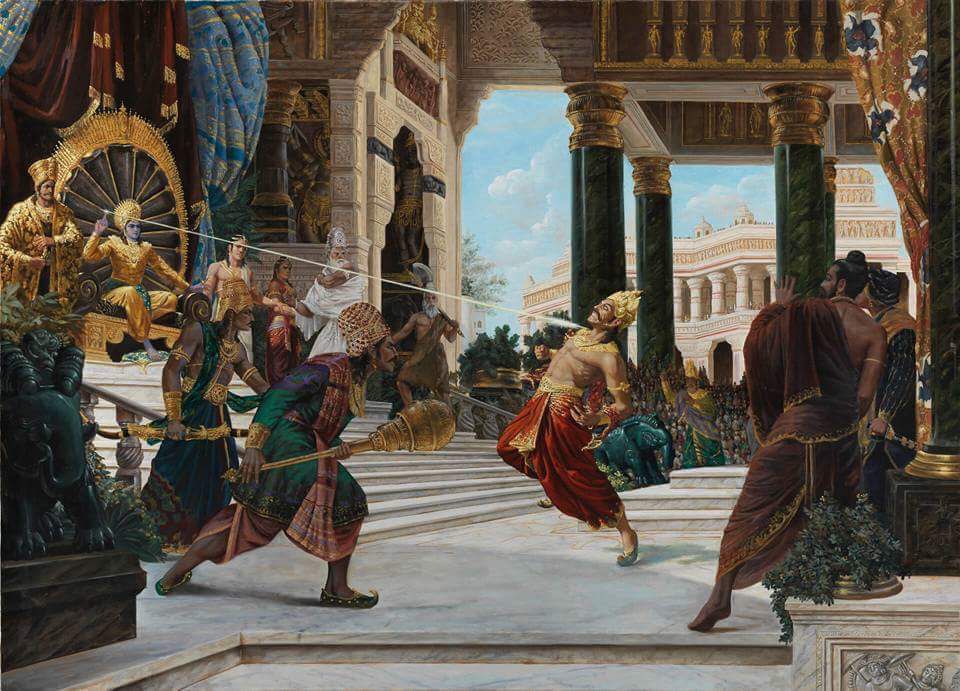Quotations
“He wrapped himself in quotations—as a beggar would enfold himself in the purple of Emperors.” —Rudyard Kipling
आशा नाम नदी मनोरथजला तृष्णातरङ्गाकुला Translation: Hope, like a river, with fantasies as water, agitated by waves of desires; attachments to various objects serving as prey; abounding in thoughts of greed, like birds; destroying the foes of courage; surrounded by eddies of ignorance deep and difficult to cross; with precipitous banks of anxiety—such a river the perfected yogis of pure minds, cross to enjoy beatitude.
Metre: Atidhṛti (19×4 syllables)
Rhyme Scheme: ABBAरागग्राहवती वितर्कविहगा धैर्यद्रुमध्वंसिनी ।
मोहावर्तसुदुस्तरातिगहना प्रोत्तुङ्गचिन्तातटी
तस्याः पारगता विशुद्धमनसो नन्दन्ति योगीश्वराः ॥ १०॥
Vladmir At me too someone is looking, of me too someone is saying, “He is sleeping. He knows nothing. Let him sleep on.“
तर्क स्वयं भटका है खोजने जा तत्व को,
फिर भी न माने कौन उसके महत्व को?
शंका-वधू जेठी, वर हेठा समाधान है!
बोले श्रीद—“मत तो शची का ही प्रधान है”।
विदुर यह जो पीड़ा ने पराजय ने दिया है ज्ञान, दृढ़ता ही देगा वह। धृतराष्ट्र किन्तु, इस ज्ञान ने भय ही दिया है विदुर! जीवन में प्रथम बार आज मुझे आशंका व्यापी है।
सकारनानारकास-

कायसाददसायका।
रसाहवा वाहसार-
नादवाददवादना॥ Translation: (That army), which relished battle (rasāhavā) contained allies who brought low the bodes and gaits of their various striving enemies (sakāranānārakāsakāyasādadasāyakā), and in it the cries of the best of mounts contended with musical instruments (vāhasāranādavādadavādanā).
Metre: Anushtubh (8×4 syllables)(When mirrored vertically, the text reads the same in all 4 directions.)
स का र ना ना र का स का य सा द द सा य का र सा ह वा वा ह सा र ना द वा द द वा द ना ना द वा द द वा द ना र सा ह वा वा ह सा र का य सा द द सा य का स का र ना ना र का स
When a measure becomes a target, it ceases to be a good measure.
The natural result of any investigation is that the investigators either discover the object of search or deny that it is discoverable and confess it to be inapprehensible, or persist in their search. So, too, with regard to the objects investigated by philosophy, this is probably why some have claimed to have discovered the truth, others have asserted that it cannot be apprehended, while others again go on inquiring. Those who believe they have discovered it are the “Dogmatists”, specially so called Aristotle, for example, and Epicurus and the Stoics and certain others; Cleitomachus and Carneades and other Academics treat it as inapprehensible: the Sceptics keep on searching.
A man will be imprisoned in a room with a door that’s unlocked and opens inwards; as long as it does not occur to him to pull rather than push it.